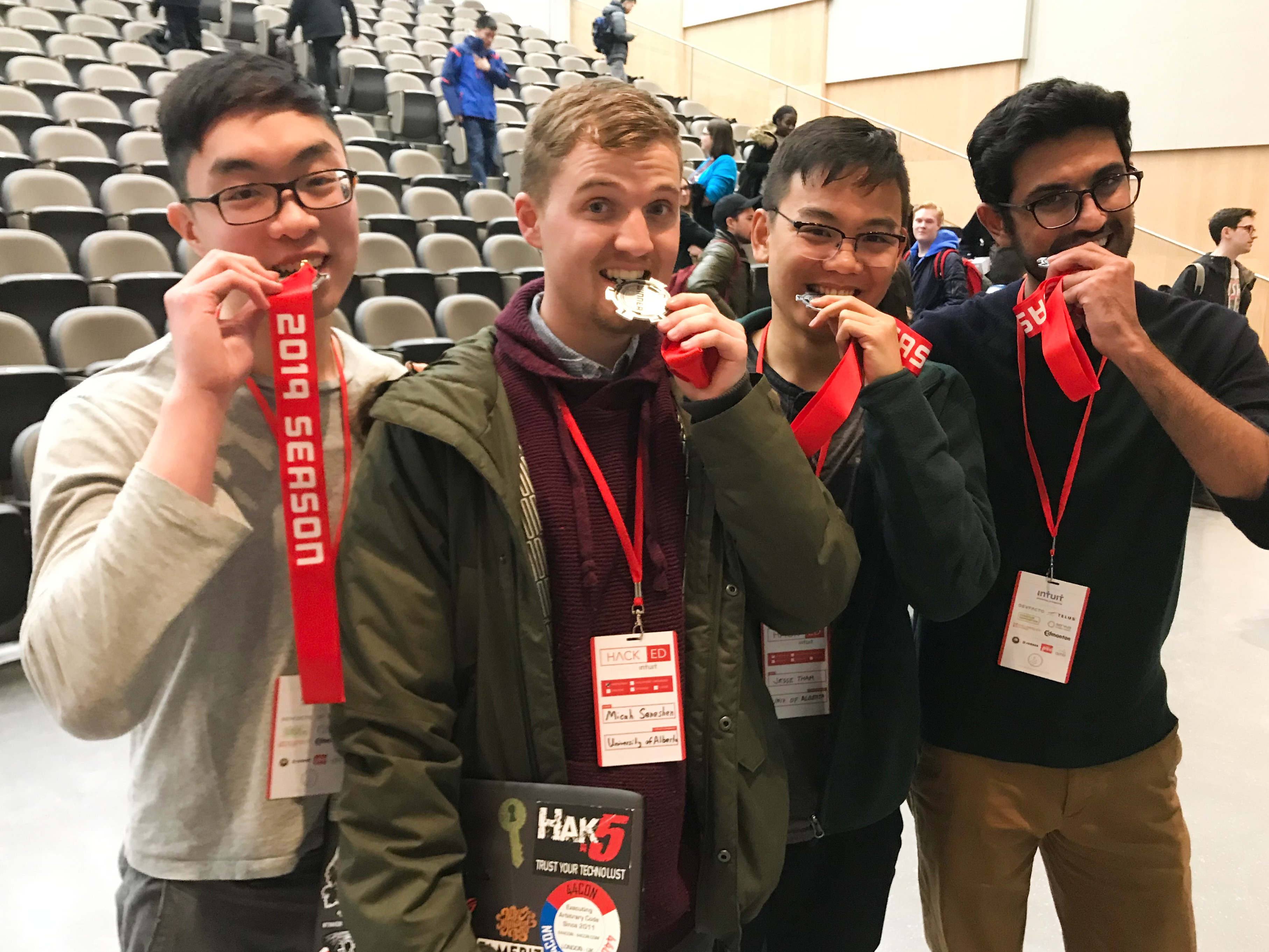
HackED 2019 winners Jacky Chung, Micah Seneshen, Jesse Tham and Rumman Waqar designed a Crowd Density Estimator with applications in areas as diverse as public transit and retailing.
(Edmonton) A team that pulled together high-tech platform to monitor crowd movements and density in 24 hours won $1,000 and bragging rights at HackED, the sixth annual Computer Engineering Club hack-a-thon.
Just over 300 competitors had spent the weekend at HackED, programming and building hardware to bring their ideas to life. In the end, engineering students Rumman Waqar and Jessie Tham and computer science students Micah Seneshen and Jacky Chung's Crowd Density Estimator won top honours.
The computer program monitors wifi signals, using that information to position individual cell phones on a map, in real time.
The applications for the technology are broad, from monitoring customer movements to find out where customers are going and what they are sending time looking at in retail stores, to helping find efficiencies in public transit.
"We're really excited to win this," said Waqar. The team members are all part of the Faculty of Engineering's Autonomous Robotic Vehicle Project, which designs, builds and underwater vehicles that compete in robotic submarine competitions.
HackedEd lead organizer Nathan Doraty, vice president of the computer engineering club, said dozens of volunteers made the event a success.
"Year over year, this event keeps getting better," he said, adding that the number of competitors this year more than doubled last year's attendance. What's more, HackED was recognized as an official Major League Hacking event this year, earning critical support from the U.S.- based group that organizes and supports student hack-a-thons.
"People love HackED," Doraty added. "There's nothing else like it in Alberta."
Industry sponsors like Intuit, Telus, and Servus Credit Union, Jobber, and many more provide mentorship and run workshops to teach students new skills.
Contestant were also delighted to have access to the new Elko Engineering Garage, a 6,000-square-foot makerspace, where they could solder circuit boards, print 3-D parts and have access to a suite of tools to prototype their inventions.
UAlberta computer engineering alumnus Steven Knudsen attended HackED this year as an alumni mentor and to help connect students to The Pod, a new centre where students can get mentorship on creating startups, and can build or prototype products and ideas.
"Being here is a good way to promote awareness of The Pod and to meet students and identify some really promising groups," said Knudsen, who was attending his fourth HackED as a mentor.
By attending HackED, students and employers meet like-minded individuals, and serendipitous bonds are formed, he said, citing two teams working on robotic prosthetic limbs. He encouraged more industry and government attendance.
"Everyone should know about this," he said. "Everyone should be here. Where else are you going to find such a concentration of highly motivated students who have come together because they're driven to create things?"
HackED runners up were RoVR the Explorer, a robotic vehicle that maps its environment in 3-D so its operator can see where it is using virtual reality headgear; and a Gesture Controlled Robotic Arm designed to give amputees greater support.